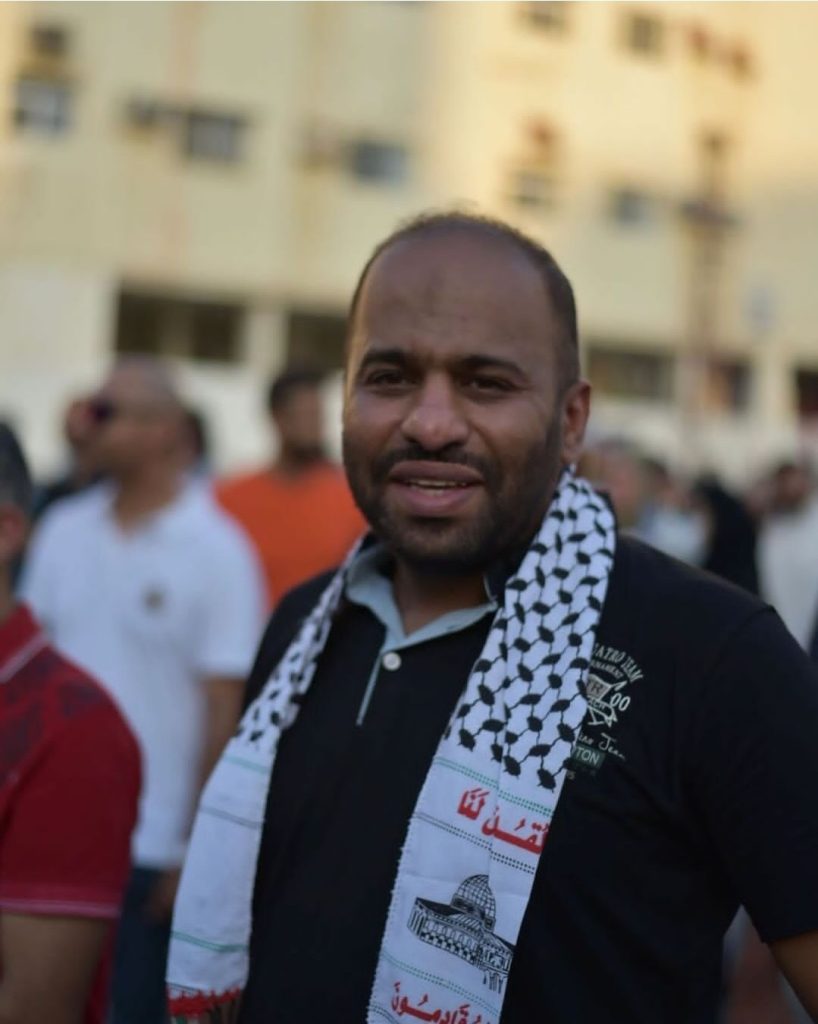To the attention of: Permanent Missions of Member States to the United Nations in Geneva
6 September 2023
Your Excellency,
We, the undersigned organisations, are writing to you urgently with regard to the ongoing hunger strike by over 800 hundred people detained in Bahrain’s Jau Prison. We urge you to use the upcoming 54th Session of the United Nations Human Rights Council (HRC) that will occur between 11 September and 13 October 2023, to press the Bahraini authorities to immediately and unconditionally release all those arbitrarily detained on abusive charges, or after grossly unfair trials, including human rights defenders Abdulhadi Al-Khawaja and Dr. Abduljalil Al-Singace. In this regard we call on your government to raise this issue at the upcoming Session of the HRC through a joint intervention with other states under the Item 4 General Debate or, at a minimum, raise this issue and the cases below through an individual statement.
Based on exchanges with individuals who are detained at the prison, as well as some of their family members, the Bahrain Institute for Rights and Democracy, has found that people arbitrarily detained in Jau Prison are forced to endure extremely harsh conditions, including spending 23 hours each day in their cells. The prisoners are calling for an end to solitary confinement, increased time outside of their cells, prayer in congregation at the prison building mosque, face-to-face visitation without glass barriers, access to adequate medical care, and access to education.
We are particularly concerned for the life of Abdulhadi Al-Khawaja, a prominent Bahraini-Danish human rights defender who is currently on a hunger strike to protest his unjust imprisonment and the continued denial of urgent medical care he has been subjected to while detained.
Al-Khawaja, the co-founder of both the Gulf Centre for Human Rights and the Bahrain Center for Human Rights, has been unjustly imprisoned for 12 years. He was arrested in 2011 for his role in peaceful demonstrations during Bahrain’s pro-democracy uprising and is currently serving a life sentence in Bahrain. The UN Working Group on Arbitrary Detention issued an opinion in 2012 deeming the human rights defender’s continued detention to be arbitrary. Al-Khawaja’s health has deteriorated significantly during his imprisonment. He has been subjected to severe physical, sexual, and psychological torture.
Prison authorities have repeatedly failed to provide or allow Al-Khawaja access to adequate medical treatment. In February 2023, Al-Khawaja experienced a cardiac arrhythmia. For several months, he was denied access to adequate medical treatment, despite continued cardiac problems and the risk of cardiac arrest.
On August 9, 2023, Al-Khawaja initiated a hunger strike alongside hundreds of other inmates demanding better conditions in Jau Rehabilitation and Reform Center. Two days later, on August 11, he was rushed to the intensive care unit of a Bahraini military hospital due to serious cardiac problems. The attending doctor stressed the imminent danger to Al-Khawaja’s life and administered an intravenous injection until his heart rate stabilised.
Al-Khawaja was then returned to prison, where he continued his hunger strike. On August 28, he was transported to a hospital for a short period of time and a doctor performed several tests. Al-Khawaja has not yet been provided with a diagnosis or provided a follow-up appointment. He continues to require urgent and adequate medical care, which prison authorities are yet to provide. According to an independent doctor consulting for the family and who is knowledgeable about Al-Khawaja’s case and health, his life is at imminent risk given his deteriorating condition, chronic health issues, and the potential for sudden, fatal cardiac arrest.
We are also deeply concerned about the health of Dr. Abduljalil Al-Singace, a Bahraini academic and award-winning human rights defender serving a life sentence in Bahrain. He has been on a hunger strike without solid food since July 8, 2021, in protest of the confiscation of his handwritten notes by prison authorities. During his hunger strike, he has been sustaining himself on multivitamin liquid supplements, tea with milk and sugar, water, and salts. Dr. Al-Singace has been subject to solitary confinement and denied access to adequate medical treatment, despite the fact he is being held at Kanoo Medical Center, which is a medical facility.
Bahraini authorities, including the Ministry of Interior and its Ombudsman office and the Special Investigations Unit, are responsible for the deteriorating conditions faced by people on hunger strike. The Ministry of Interior oversees Jau Prison, and its Ombudsman recently provided a misleading representation of prison conditions, according to Bahrain Institute for Rights and Democracy.
Serious human rights abuses in Bahrain have not been sufficiently addressed at the HRC since a joint statement delivered by states in 2015. The danger to the lives and wellbeing of Bahraini human rights defenders and others unjustly imprisoned in Bahrain require UN member states to once again take up this issue as a matter of urgency.
We would welcome a meeting with your government to discuss this matter further, and appreciate your time and attention to this matter.
Signatories:
- Americans for Democracy & Human Rights in Bahrain (ADHRB)
- Amnesty International
- Bahrain Institute for Rights and Democracy (BIRD)
- Cairo Institute for Human Rights Studies (CIHRS)
- Democracy for the Arab World Now (DAWN)
- Freedom House
- Front Line Defenders
- Gulf Centre for Human Rights (GCHR)
- Human Rights First
- Human Rights Foundation
- Human Rights Watch (HRW)
- International Service for Human Rights (ISHR)
- Project on Middle East Democracy (POMED)
- Rafto Foundation for Human Rights
- The #FreeAlKhawaja Campaign



